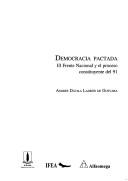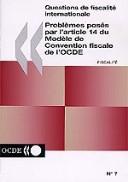| Listing 1 - 10 of 245 | << page >> |
Sort by
|
Book
Year: 2016 Publisher: Florence : Firenze University Press,
Abstract | Keywords | Export | Availability | Bookmark
 Loading...
Loading...Choose an application
- Reference Manager
- EndNote
- RefWorks (Direct export to RefWorks)
This volume examines how the definition of art is not to be considered the prerogative of philosophical and aesthetic disciplines, but should rather assume decisive importance for the legal protection of the art object. Based on this premise, this work retraces the evolution of the concept of art and its limits in the case law of US courts, focusing on the constitutional aspect of the freedom of artistic expression. This volume notes how the cases in which judges must decide whether or not an object constitutes a work of art can say much more about the nature of judgement than about the nature of art itself.
Book
Year: 1972 Publisher: München : Südosteuropa-Ges.,
Abstract | Keywords | Export | Availability | Bookmark
 Loading...
Loading...Choose an application
- Reference Manager
- EndNote
- RefWorks (Direct export to RefWorks)
Enthält Aufsätze. Durchsuchbare elektronische Faksimileausgabe als PDF. Digitalisiert im Rahmen des DFG-Projektes Digi20 in Kooperation mit der BSB München. OCR-Bearbeitung durch den Verlag Otto Sagner.
Periodical
ISSN: 20743769 Year: 1998 Publisher: Paris : OECD Publishing.
Abstract | Keywords | Export | Availability | Bookmark
 Loading...
Loading...Choose an application
- Reference Manager
- EndNote
- RefWorks (Direct export to RefWorks)
Cette série publie les actes des colloques et séminaires du Centre de développement, souvent en coopération avec d’autres institutions ou organisations internationales.
Development --- Seminars --- Congresses and conventions --- College teaching --- Education, Higher --- Forums (Discussion and debate) --- Colloquia --- Colloquiums --- Conferences --- Conventions (Congresses) --- International conferences, congresses and conventions --- Symposia --- Symposiums --- Intellectual cooperation --- Convention facilities --- Seminars. --- Congresses and conventions.
Periodical
ISSN: 25043900 Year: 2017 Publisher: [Basel, Switzerland] : MDPI AG,
Abstract | Keywords | Export | Availability | Bookmark
 Loading...
Loading...Choose an application
- Reference Manager
- EndNote
- RefWorks (Direct export to RefWorks)
research --- conferences --- publications --- results --- Congresses and conventions --- Research
Book
ISBN: 8571060118 Year: 1989 Publisher: Rio de Janeiro Revan
Abstract | Keywords | Export | Availability | Bookmark
 Loading...
Loading...Choose an application
- Reference Manager
- EndNote
- RefWorks (Direct export to RefWorks)
Constitutional conventions --- Constitutional history --- Legislators --- History --- Brazil. --- History. --- Membership.
Periodical
ISSN: 24124516 Year: 2011 Publisher: New York United Nations
Abstract | Keywords | Export | Availability | Bookmark
 Loading...
Loading...Choose an application
- Reference Manager
- EndNote
- RefWorks (Direct export to RefWorks)
The Index to Proceedings is a powerful tool which provides a window into the annual meetings of the main UN organs. The publication is comprised of a subject index to all the documents issued by the body in question during a particular session/year and an index to speeches delivered before the forum in question during a particular session/year.
United Nations. --- Nations Unies. --- Congresses --- Congresses and conventions. --- Colloquia --- Colloquiums --- Conferences --- Conventions (Congresses) --- International conferences, congresses and conventions --- Symposia --- Symposiums --- Hospodářská a sociální rada --- E.C.O.S.O.C. --- ECOSOC --- Intellectual cooperation --- Convention facilities --- United Nations

ISBN: 9586823954 2821844700 Year: 2015 Publisher: Lima : Institut français d’études andines,
Abstract | Keywords | Export | Availability | Bookmark
 Loading...
Loading...Choose an application
- Reference Manager
- EndNote
- RefWorks (Direct export to RefWorks)
Este libro aborda la cuestión de la democracia colombiana, sus características, su desempeño, sus retos, sus debilidades. Se ubica, claramente, dentro de aquellas corrientes que enfatizan el carácter democrático de su régimen político y, desde allí, tratan de descifrar su trayectoria y sus tendencias. Es también, un trabajo sobre el cambio político en Colombia. Por ello, examina en detalle y de manera comparada, los dos principales momentos de cambio de la historia política reciente: el Frente Nacional y el proceso constituyente de 1991. Y descubre en ellos obvias diferencias, pero también singulares semejanzas Entre ellas, ese rasgo particular y paradójico que si bien ha hecho a Colombia infértil para las dictaduras (y habría que agregar para las revoluciones), lo ha hecho excesivamente fertile para las reformas y los cambios a través de procesos pactados y negociaciones sin fin, sin vencedores ni vencidos. El libro intenta, a su manera, alguna explicación sobre la coexistencia de democracia, violencia y buen comportamiento económico. Y busca pensar a Colombia desde la perspectiva de lo que, bajo los conceptos de transiciones y consolidación democrática, se ha trabajado, al menos, en América Latina. Es éste, sin lugar a dudas, un texto que no ofrece respuestas definitivas, pero que tal vez permite hacerse mejores preguntas sobre lo que sucede en Colombia. Y que, tal y como lo señala en las conclusiones, "En definitiva, todo indica que la restringida democracia colombiana seguirá su marcha. De allí que resulte todavía pertinente la preocupación por comprenderla en la perspectiva de descifrar la validez y el sentido de sus condiciones de posibilidad. Pero además, queda abierta la pregunta acerca de si su maltrecha vigencia es, en verdad, indeseable".
Democracy --- Constitutional history --- Constitutional conventions --- Frente Nacional (Colombia) --- Colombia --- Politics and government --- Conventions, Constitutional --- pouvoir --- démocratie --- armée --- XXe siècle --- parti politique --- histoire politique --- Colombie --- Constitution
Periodical
ISSN: 25494635 25494627 Year: 2017 Publisher: [Surakarta, Indonesia] Universitas Sebelas Maret
Abstract | Keywords | Export | Availability | Bookmark
 Loading...
Loading...Choose an application
- Reference Manager
- EndNote
- RefWorks (Direct export to RefWorks)
physics --- biology --- mathematics --- chemistry --- education --- materials science --- Science --- Technology --- Congresses and conventions --- Colloquia --- Colloquiums --- Conferences --- Conventions (Congresses) --- International conferences, congresses and conventions --- Symposia --- Symposiums --- Intellectual cooperation --- Convention facilities --- Technology. --- Science. --- Congresses and conventions. --- Applied science --- Arts, Useful --- Science, Applied --- Useful arts --- Industrial arts --- Material culture --- Natural science --- Science of science --- Sciences --- Natural sciences
Book
ISBN: 3845289554 384874807X 9783845289557 Year: 2018 Publisher: Baden-Baden, Germany : Nomos,
Abstract | Keywords | Export | Availability | Bookmark
 Loading...
Loading...Choose an application
- Reference Manager
- EndNote
- RefWorks (Direct export to RefWorks)
Areas of limited statehood, in which the territorial State lacks effective control, either completely or in part, challenge International Humanitarian Law in various ways. This volume explores if and how the law adapts to these challenges on the basis of mainly two legal issues: detention and investment protection in (non-)international armed conflict. Does a sufficient legal basis exist for the former? Is it International Humanitarian Law that determines what the investor is owed under a 'full protection and security' standard? More fundamentally, the contributions strive to shed light on these practical legal issues in a manner that is also historically and theoretically informed. How can international law be effective in areas of limited statehood, in particular as regards non-State actors? Can the law provide incentives for compliance? Is it in need of being developed? If so, who enjoys the legitimacy to do so?
Humanitarian law. --- Humanitarian conventions --- International humanitarian law --- War (International law) --- Law --- International

ISBN: 9264276432 9264281231 Year: 2000 Volume: 7 Publisher: Paris Organisation de Coopération et de Développement économiques
Abstract | Keywords | Export | Availability | Bookmark
 Loading...
Loading...Choose an application
- Reference Manager
- EndNote
- RefWorks (Direct export to RefWorks)
L'imposition des professions libérales et des autres activités de caractère indépendant dans le cadre de l'article 14 du Modèle de Convention fiscale de l'OCDE pose certains problèmes. Par exemple, quelles sont les activités et entités qui relèvent de l'article 14 par opposition à l'article 7 sur les bénéfices des entreprises ? La distinction entre ces activités et entités est-elle satisfaisante et facile à appliquer ? Quelles sont les différences pratiques qui existent entre l'imposition sous l'article 7 et l'imposition sous l'article 14 ? Cet ouvrage examine ces questions de manière détaillée et conclut qu'il n'y a pas de différences pratiques entre les deux articles et que, dans le cas où des différences apparaîtraient, elles ne pourraient être justifiées sur le plan de la politique fiscale. En conséquence, il recommande que l'article 14 soit supprimé du Modèle et décrit les modifications à apporter aux articles et aux commentaires du Modèle.
Taxation --- Impôt --- conventions fiscales internationales --- ocde --- internationale belastingverdragen --- oeso --- Industries --- Taxation. --- Industries.
| Listing 1 - 10 of 245 | << page >> |
Sort by
|

 Search
Search Feedback
Feedback About UniCat
About UniCat  Help
Help News
News